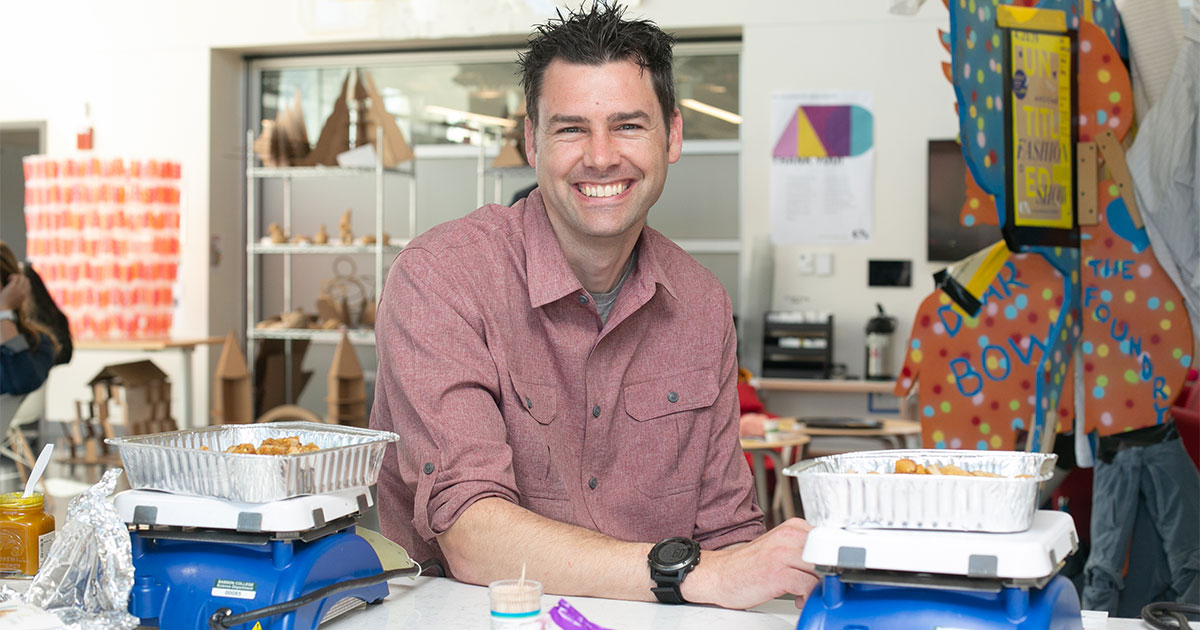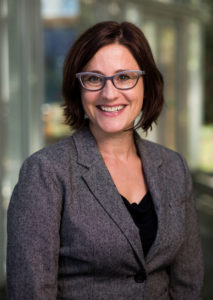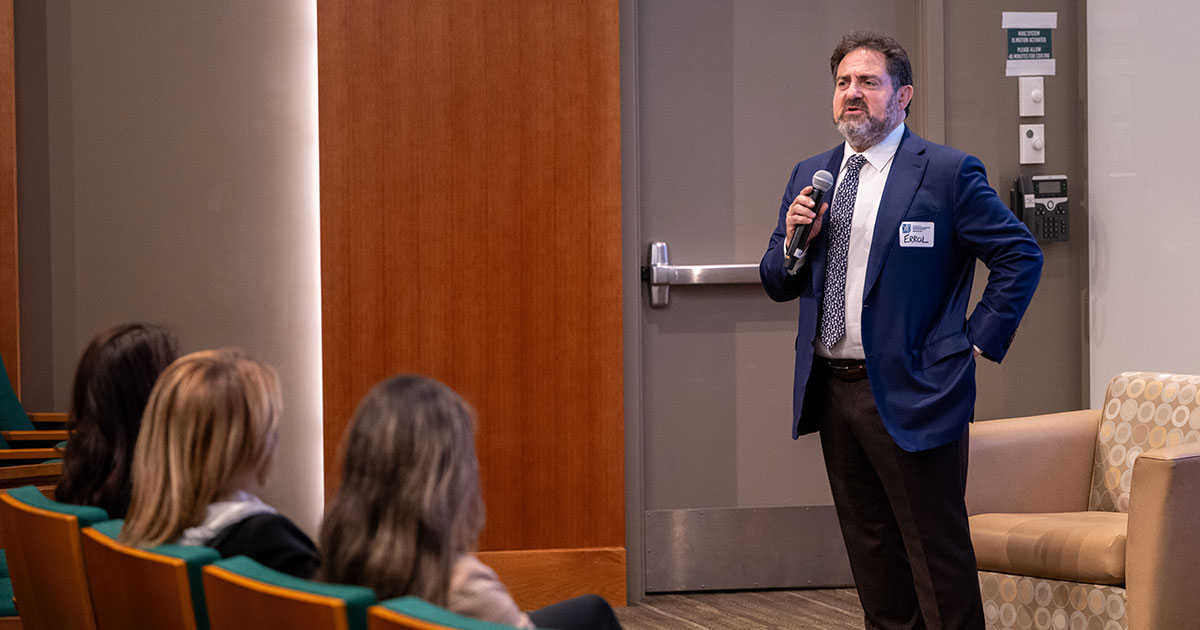A New Curriculum for a Changing World

For many, many years, science has warned of the daunting future awaiting us.
“We have recognized for a long time that climate change will have meaningful effects on our lives,” says David Blodgett, associate professor of biology at Babson College.
This summer, that scary reality was laid out before us, with scorching temperatures in the Northwest, vast wildfires in the West, a powerful hurricane in the South, and destructive rain and flooding in the Northeast. Disaster seemingly touched every corner of the country.
At Babson, students will confront this challenge head on. The College is implementing a new core undergraduate curriculum this fall that will include an added emphasis on sustainability. Every sophomore will take a course, Socio-Ecological Systems, that focuses on integrated sustainability, a holistic way of thinking that asks students to consider the interconnectedness of the world, of how the decisions we make can reverberate and have far-reaching implications on the environment and our communities in ways we might not anticipate.
“It ensures that all Babson students are introduced to sustainability in their education,” says Blodgett, who, as faculty director of integrated sustainability, is helping to coordinate the new curriculum. “We get to explore all the consequences of the decisions we make as humans. We look at the full scope of the problem.”
Fueling Students’ Passions
The new core curriculum, which aims to prepare Babson’s students to be the entrepreneurial leaders of the future, adds increased focus on two longtime features of the Babson educational experience: integrated sustainability and experiential learning.
Students will continue to kick off their Babson journey with Foundations of Management and Entrepreneurship, or FME, the College’s long-standing, award-winning core first-year course where they learn to create, launch, and manage a new venture.

Vikki Rodgers, professor of ecology and chair of Babson’s Math and Science Division
After taking Socio-Ecological Systems their sophomore year, students then cap off their time at Babson with a new Advance Experiential requirement, in which they gain valuable experience by participating in a semester-long project with an established company or nonprofit.
The new curriculum comes at a time when many students are passionate about sustainability.
“We see it in the students. In my classes that I’ve taught sustainability, they are always full,” Blodgett says. “They want to focus on a topic that is very important to them. There is a lot of student passion to do what is right, to make an impact.”
The Socio-Ecological Systems course looks at how human behavior can create imbalances, disruptions, and structural injustices in the systems that make up society and the world. Multiple versions of the course will be offered, each with a different focus—on food systems, water systems, urban systems, or natural disaster resilience—that students can select.
The first of these that was developed, Socio-Ecological Urban Systems, investigates how ecological, political, social, and economic issues are connected in urban areas. The course was created and co-taught by two professors: Vikki Rodgers, professor of ecology and chair of the Math and Science Division, and Stephen Deets, professor of political science and chair of the History and Society Division.
This transdisciplinary model, of having a course taught by both natural science and social science professors, will be followed in all the Socio-Ecological Systems courses. By having two professors from different disciplines providing instruction, the course offers a fuller picture of sustainability issues.
“One discipline alone cannot solve these problems, and collaboration across very different perspectives is necessary and is where true learning occurs,” Rodgers says. “I really do think this is the most effective way for students to learn about these complex issues.”
Understanding and Hope
Socio-Ecological Systems will offer multiple perspectives on the climate crisis, looking, for instance, at how it affects a poor person living without air conditioning, or a person who makes their home by the sea, or a person whose job is outside in the summer.
It will look at how governments and companies can take action on climate, what obstacles stand in their way, and how their decisions may play out across society and the environment. “Something you do on one end may have multiple consequences, some you may not have intended,” Blodgett says. “We try to encourage students to anticipate the unintended consequences.”
“At some point, our students will go out in the real world. As they make decisions, we encourage them to think of multiple perspectives, and how every decision they make has multiple outcomes.”David Blodgett, associate professor of biology
Ultimately, this holistic way of thinking about our world is what Blodgett hopes students take away from the course.
“We want to teach systems thinking over linear thinking,” he says. “At some point, our students will go out in the real world. As they make decisions, we encourage them to think of multiple perspectives, and how every decision they make has multiple outcomes.”
Climate change may be a monumental challenge, but students can make a difference in the future. “I’m an optimist, and, honestly, I have to be as someone who does research on climate change,” Rodgers says. “Although I definitely want students to realistically understand the science and the social aspects of these complicated problems and how intricately they are connected, I also want them to develop hope in working toward solving them.”
Posted in Community




